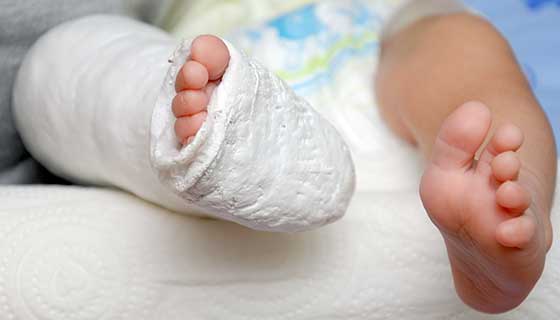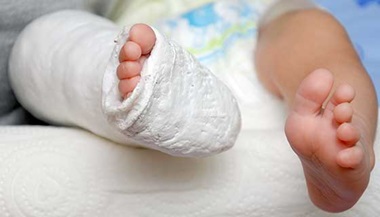Hypocalcemia in Children
What is hypocalcemia?
Hypocalcemia is a condition in which there is too little calcium in the blood. Normal calcium levels are essential for the heart and muscles to work properly as well as to ensure bone development. In a baby, some common causes of hypocalcemia are premature birth, infections, maternal diabetes and some medications. Hypocalcemia can be caused by vitamin D deficiency, which can occur in breastfed babies who are not given vitamin D supplements. Rare causes of hypocalcemia include hyperparathyroidism (a disorder of the pituitary gland) and pseudohypoparathyroidism, a genetic disorder that mimics hypoparathyroidism.
Symptoms
There are frequently no symptoms of hypocalcemia. When present, symptoms include:
-
Dry skin
-
Dry hair
-
Brittle nails
-
Muscle cramps
-
Tingling in the fingers and toes
-
Weakened tooth enamel
Diagnosis
Diagnosis can be made with a blood test to check calcium levels. Measuring blood levels of parathyroid hormone and vitamin D can help determine the cause of the hypocalcemia.
Treatment
Restoring normal calcium levels with calcium supplements is important because long-term hypocalcemia can cause poor bone formation, and brittle bones that are prone to fractures. Vitamin D supplements may be given. .
When to Call for Help
If any of the above signs develop, talk to your pediatrician.





